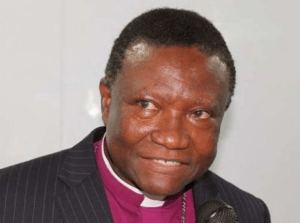Monetisation in politics threat to national development – Rev. Prof. Asante

Reverend Professor Emmanuel Asante, Chairman of the National Peace Council, says monetisation of politics in the country continues to deny well qualified persons from seeking political office.
He said there are many people with brilliant ideas and with the good heart to serve the country but due to their inability dole out money they fail to go through the initial stages within their political parties.
Describing monetization in politics as worry and a disturbing trend, he said, it was also breeding corruption, making politics expensive and this has partially contributed to the surge of political vigilantism.
Professor Asante said this on Monday at a day’s national stakeholders’ consultation on monetisation of politics organised by the Ministry of Parliamentary Affairs in Accra.
It was held under the theme: “Money, Influence, Corruption and Capture: Can Ghana’s Democracy be Safeguarded”.
Professor Asante said the syndrome of monetisation in politics has led to the lack of patriotism and the state capture phenomenon; and robbed the nation of its hard-won reputation of peace and development.
Dr Evans Aggrey-Darkoh, Chief Director of the Ministry of Parliamentary Affairs, said monetisation in politics is a grave concern to all democracy-enhancing institutions and individuals.
“We recognise the immense contribution of political parties to the democracy of the country but also we recognise that monetisation in politics, which has encouraged elite control, corruption and violence, has dire consequences for the sustenance of the democracy,” he said.
Dr Aggrey-Darkoh said the forum would help provide appropriate recommendations to curb monetisation in politics.
Mr Osei Kyei-Mensah-Bonsu, the Minister of Parliamentary Affairs, said the forum would encourage a national discourse on monetization in politics and come out with measures to curtail the concern.
He said if care is not taken, the political position would rest on only the rich in society to the detriment of a competence-based approach, which would affect the core values of democratic governance.
The Majority Leader said the Inter-Parliamentary Union has called on Parliament to ensure that by 2025, women in its membership would constitute 30 per cent.
He said the winner takes all system ‘guarantees a do or die’ attitude during political elections and it is imperative for all to be concerned and help address the situation.
Mr Haruna Iddrisu, the Minority Leader in Parliament, called for a concerted effort to discuss the issues dispassionately devoid of political affiliation.
He said there are growing concerns of public confidence in the elected candidates, acts of vigilantism and the inability of elected political elites to discharge their duties in parliament, and these needed attention to safeguard the country’s democracy.
Source: GNA
